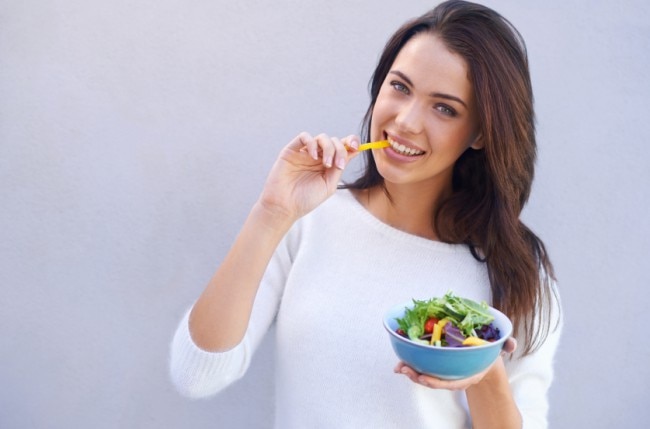What's your identity? No, we're not asking whether you're Italian-American or African-American, or a Bostonian or New Yorker.
We're curious about your dietary micro-identity, a simple tag that tells others about the food choices you make, and why you do so.
Recently, the New York Times gave micro-identities a big boost when the paper singled out the micro-identity "climatarian" as one of the top 10 most interesting food terms of 2015.
Climatarian is just one of several micro-identity monikers. They include:
- Climatarian. A person who consumes a diet that promotes efforts to curb climate change. The diet is an outgrowth of the London-based social network Climates and primarily consists of eating relatively earth-friendly meats such as poultry and pork instead of beef and lamb.
- Locavore. A person whose diet consists of locally produced foods. One rule of thumb is that a locavore does not eat food grown beyond 100 miles from where it was sold or consumed.
- Fruitarian. A person whose diet consists primarily of fruits, with nuts and seeds often thrown in as well. Animal products are excluded in this form of veganism.
- Reducetarian. A person who does not necessarily give up meat, but who is trying to cut back on meat intake.
- Veggan. A vegan who nonetheless eats eggs.
Samuel Boerboom, an assistant professor of media studies at Montana State University Billings and editor of the book "The Political Language of Food," has closely followed the emergence of micro-identities.
He says the movement has grown out of the belief that food choices are as much of a political statement as the car you drive, whether or not you recycle, and the political candidates you support.
"What we eat has just as much of an impact -- or more – than other things we do," Boerboom says.
If adherents to the laundry list of micro-identities share one common belief, it is that "mass-produced food is better for producers than for consumers," Boerboom says.
People who subscribe to micro-identities also feel a powerful call to switch to eating habits that are more earth-friendly.
Criticisms of micro-identities
Some people have criticized the micro-identity movement. Boerboom acknowledges there is a perception in the media and elsewhere that the concept of micro-identities is elitist, and boils down to "a bunch of privileged kids posting meals on Instagram."
Other critics have questioned whether such movements are ecologically sound. For example, some studies have concluded that localizing agriculture -- a prime aim of locavores -- can actually result in an increase in the use of both land and chemicals, and may end up doing more harm to the environment than good.
But Boerboom says associating oneself with a micro-identity can help strengthen a commitment to fight against unsustainable food production policies and consumption patterns.
He says micro-identities bring like-minded people together -- through social media channels and other forums -- so they can become a powerful force for change.
"Any action that calls attention to how unnaturally our food is produced in the 21st century…is a good thing," he says.
The future of micro-identities
Despite such good intentions, it remains to be seen whether the micro-identity movement will follow through on its promise, Boerboom says.
"It is hard to know right now if this is something that is faddish, or if this is going to be something more permanent," he says.
Many challenges loom. For starters, Boerboom says the growing number of micro-identities can itself be a problem. Rather than finding common ground, some people cling zealously to their own micro-identity while criticizing others.
"It makes political solidarity hard," Boerboom says.
Rather than highlight differences, Boerboom encourages people in the micro-identity movement to remember that anyone who agrees that "there can be a better a way" is a potential ally.
He also urges people in the movement to reach out to others who may not currently share their views, or who are on tight budgets and choose mass-produced food simply because such food is cheaper.
"Food choices are an intimate part of who they are," he says of people who choose a micro-identity. "It helps form their identity.
"They just have to make sure they are not excluding others."




